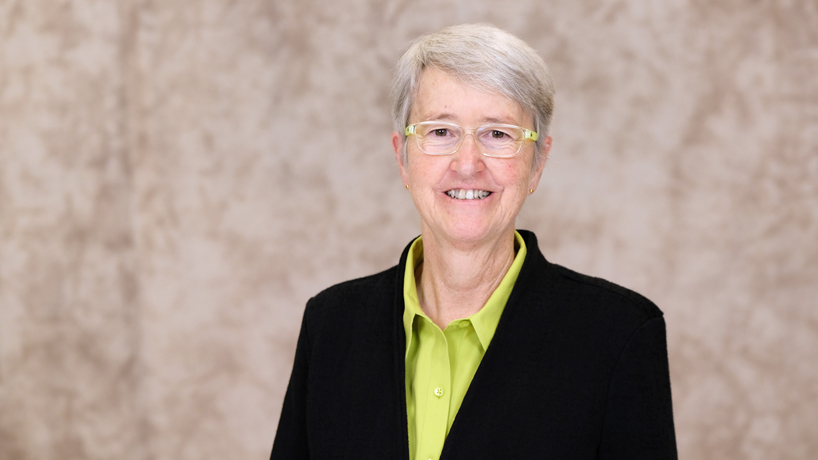
Ann Taylor, dean of the UMSL College of Education, is one of 22 leaders from around the country who is a member of the national Deans for Impact organization, a nonprofit committed to transforming the field of educator preparation. (Photo by August Jennewein)
University of Missouri–St. Louis College of Education Dean Ann Taylor was named a member of Deans for Impact on July 31, joining a national network of leaders committed to transforming how this country prepares future educators.
Taylor is one of eight new members, bringing the total membership in Deans for Impact to 22 leaders spread across 15 states and Washington, D.C. This small group works collaboratively to advise and design programming that reaches more than 130 additional leaders and 27,000 teacher candidates.
“Joining Deans for Impact connects me to a network of peers with whom I can work on improving teacher preparation – with the ultimate goal of providing stronger teachers for our K-12 students,” Taylor said. “An organization like Deans for Impact, which is committed to evidence and coherence, can help us all do a better job.”
Like all members of Deans for Impact, Taylor believes that our country’s teacher-preparation system must do better. Nearly 200,000 new teachers graduate from U.S. preparation programs each year, and many report feeling unprepared to teach in classrooms of their own. This is starting to change, thanks to leaders like Taylor who are spearheading innovative improvement efforts within their own programs and across the field.
“Our members are a selective group of proven leaders who want to create a vision for systemwide change,” said Benjamin Riley, Deans for Impact founder and executive director. “Deans for Impact is proud to foster this movement every step of the way by creating and empowering networks of leaders from diverse contexts who want to work together to ensure every student is taught by a well-prepared teacher.”
Deans for Impact is committed to building equitable and inclusive communities that are diverse by design. Founded in 2015, Deans for Impact is a national nonprofit organization that empowers leaders at all levels of educator preparation who are committed to transforming the field and elevating the teaching profession.
Here’s a short Q&A with Taylor about her involvement with Deans for Impact.
Why did you decide to join Deans for Impact?
Joining Deans for Impact connects me to a network of educators and fellow deans with whom I can focus intently on determining what shifts we can make to teacher preparation to provide stronger teachers for our K-12 students. An organization like Deans for Impact, which is committed to evidence and coherence, and leaders who are asking big questions of themselves and each other can help us all do a better job.
What is one pivotal moment in your career in educator preparation that left a positive impact on you or others?
I have had multiple experiences of working with a team of other capable professionals to solve the same problem. Whether it was initiating professional development schools across a district, redesigning an educator-preparation curriculum or reimagining the practicum experiences into studio schools – formerly “student teaching,” but in studio schools the locations, systems and practices intentionally provide multiple candidates with ways to learn and from multiple teachers in the service of student learning – the results have always been powerfully improved practices and more coherent educational experiences for all involved. Higher education can so often require our students to do the hard, isolated work of navigating across courses and content to sow together all their learning into a professional preparation. When adults form collaborative teams and intentionally design the whole journey, not just isolated parts of it, then I notice the curriculum is more coherent, the learners develop more expertise and the learning outcomes are stronger.
When did you first know you wanted to work in education? What was your first job?
I sat in my second grade classroom intently watching my teacher, and somehow I just knew I wanted to be a teacher shaping the learning journey of others. And so, naturally, my friends talked me out of it, and my first full-time job was as an analyst programmer for a multinational insurance company. But within three years, I had found my way back into an education class and, as they say, the rest is history.














